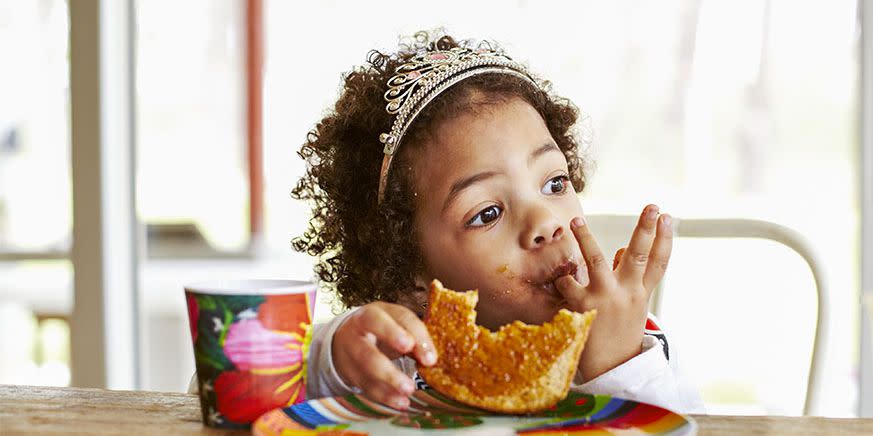How to Keep Your Kids Safe From Food Allergies

Walk into a classroom and, on average, two kids out of 26 will have food allergies, according to statistics from Food Allergy Research & Education (FARE), a nonprofit organization.
In fact, the Centers for Disease Control and Prevention estimates that the number of children with food allergies jumped 50% from 1997 to 2011. Experts don’t know exactly why there’s been an uptick: Theories range from concern that kids live in too-sterile environments to the idea that allergen-causing foods aren’t being introduced early enough and that the Western diet may make children more susceptible. Plus, there’s a genetic component.
Whatever the reason, read on for three updates on kids’ food allergies, age by age.
Baby Update: A New Trend in Prevention
The National Institutes of Health recently recommended introducing peanuts to infants based on their risk levels. And emerging companies have come up with ways to gently do the same with a variety of allergens: SpoonfulOne is a powder that contains food proteins like soy and peanuts to be mixed into a baby’s food. Inspired Start has pureed pouches that combine a fruit with a top allergen (like “banana and tree nut”). Both are appropriate for babies 4 to 6 months old.
Pre-K and Kindergarten Update: Kids May Outgrow Allergies
Confused about why your niece is chowing down on eggs when she used to be allergic to them? Just as they grow out of shoes, children can grow out of allergies. One-quarter of allergic kids phased out at an average age of 5 1/2, found the Annals of Allergy, Asthma & Immunology. The most common allergies kids leave behind are those to milk, egg, wheat, and soy, whereas reactions to shellfish, sesame, tree nuts, and peanuts are more likely to be lifelong.
Grade-School Update: Allergy Bullying Is Real
One out of three children with food allergies has been a victim of food bullying, according to FARE statistics. This can involve taunting or even physical assault with an allergen, and kids who are victims rarely talk about it when it happens.
If your child has allergies, visit noappetiteforbullying.com for guidance. Even if your kids don’t have an issue, talk to them about food allergies so they know that this is a serious subject and they can support their classmates.
Allergy Etiquette
1. Ask before you feed.
If you’re taking care of a friend or family member’s baby, get the OK from the parent before you give him or her anything to eat. Even if the baby seems old enough, parents should work out their own schedule for introducing foods with their pediatrician based on their child’s medical history.
2. Have the right meds on hand.
Hosting a child with an allergy? Talk to the parents about what medications are needed in the event of a reaction. For mild symptoms (like itching or hives), an antihistamine may be enough, but for life-threatening reactions, the parents or the child should carry an EpiPen.
This story originally appeared in the November 2018 issue of Woman’s Day.
('You Might Also Like',)


